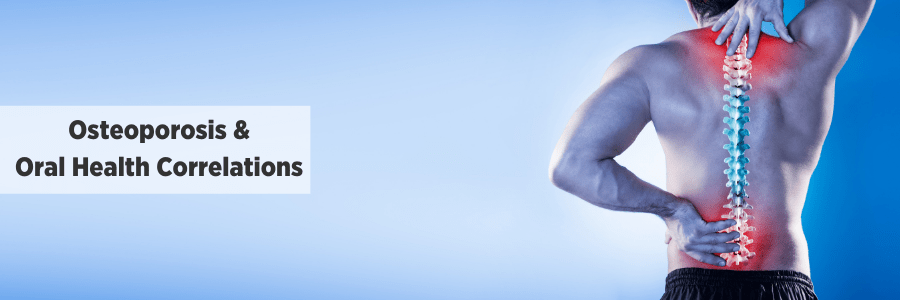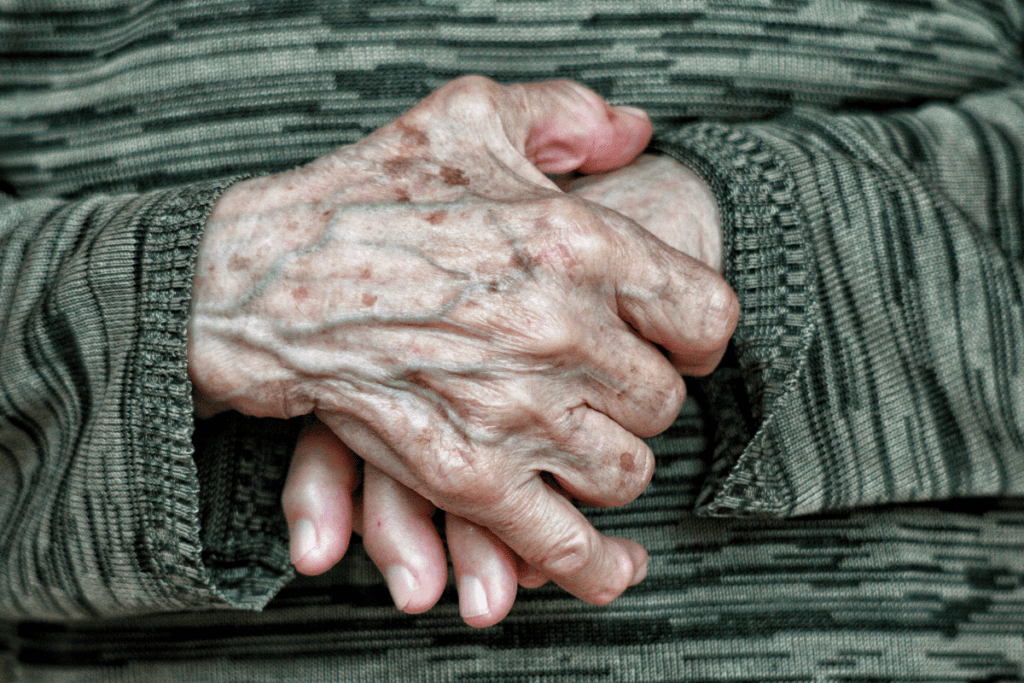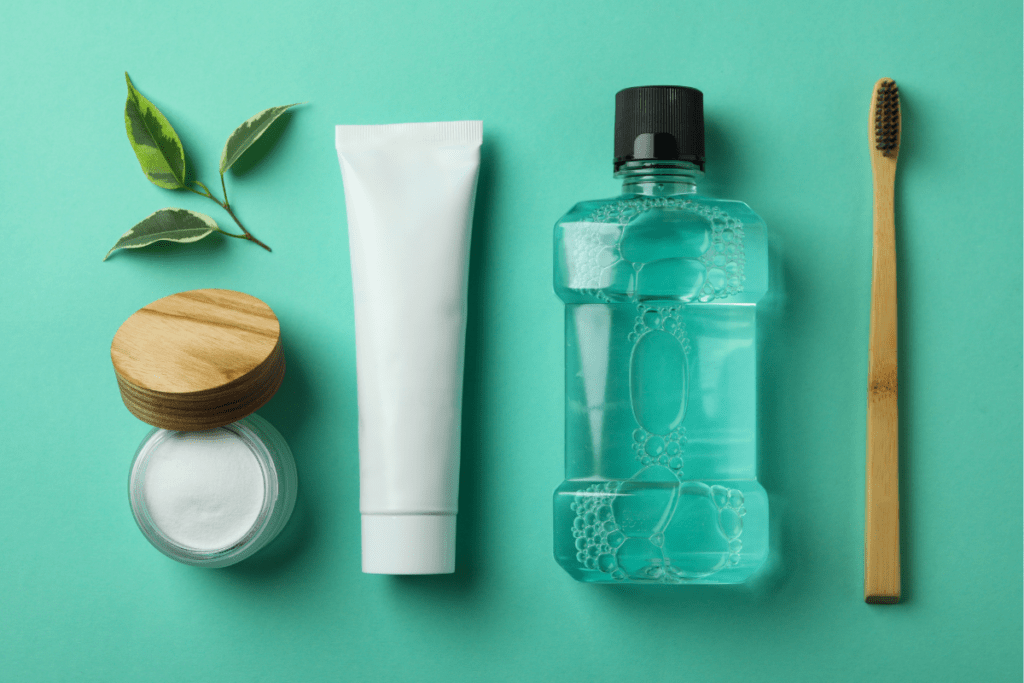Osteoporosis And Oral Health Correlations


Meet the Author: Sara Juliano, RDH
I have been a registered dental hygienist for over a decade. I have had the pleasure of working with amazing patients and educating them on their oral health throughout my career. Recently, I made the conscious decision to branch out within the dental field, choosing to maintain my dental hygiene license, and become a dental educator. With a passion for oral and systemic health, I have seen clinically the direct impact systemic health can have on oral health. I will be extending my knowledge outside of the dental chair into the world and make an impact on the lives of others. Learn more about Sara, here.

Meet the Author: Sara Juliano, RDH
I have been a registered dental hygienist for over a decade. With a passion for oral and systemic health, I have seen clinically the direct impact systemic health can have on oral health. I will be extending my knowledge outside of the dental chair into the world and make an impact on the lives of others. Learn more about Sara, here.
What Is Osteoporosis?
Osteoporosis is defined as having an extremely low bone density mass index due to an imbalance of minerals, such as calcium and phosphate ions. These essential minerals are vitally important for proper bone structure and stability, and for maintaining normal healthy bone homeostasis.
What Predisposes you to Osteoporosis?
- Alcohol consumption in large amounts
- Smoking
- Thyroid production imbalances
- Post-menopausal hormone imbalances in women
- Poor nutrition and lack of calcium in the diet
- Lack of physical activity and weight bearing exercises such as walking, running and yoga
Osteoporosis causes a mineral imbalance within the bone trabecula structures. This puts those suffering from this disease at an increased risk for bone fractures because the trabecula structures become weak, brittle and lose their stability. Severe osteoporosis may lead to decreased quality of life, disability, and morbidity if not properly maintained.

Major Cells for Maintaining Homeostasis:
There are three major cells that are essential for proper bone remineralization and demineralization. These cells are also responsible for maintaining homeostasis of the bone trabecula structure and strength:
Osteoblasts: Specific for bone growth and repair for new bone-cell formation.
Osteoclasts: Specific for bone dissolving (demineralization) so that a fresh uptake of minerals, such as calcium and phosphoric ions, from the osteoblast cells can generate and metabolize healthy bone. Remineralization of the trabecular structure is important in maintaining healthy bone density levels and generating proper bone structural strength.
Osteocytes: These cells are actively involved in bone turnover from remineralization by way of the osteoblasts to demineralization by way of the osteoclasts. Osteocytes are the vital mechanosensory cell that keeps the ion channels (that provide calcium and phosphates) open and maintains communication between the two major cells that are responsible for bone density strength and stabilization.
Those suffering from Osteoporosis have a decreased production of calcium and phosphoric ions. Bone density levels will decrease and create fragility of the skeletal system. This can be extremely painful for those suffering from this debilitating disease and increases the risk for bone fractures and breaks.
Oral Health Correlation to Osteoporosis
Bone resorption is also prevalent in the jawbone of those suffering from Osteoporosis. The jawbone supports and nourishes the structures of the teeth. This is the correlation between good oral hygiene and Osteoporosis.
Those suffering from Osteoporosis are most commonly treated by a class of drugs called Bisphosphonates. Bisphosphonates aid in restoring normal bone homeostasis in those experiencing an imbalance of essential minerals, related to Osteoporosis. One major side effect of bisphosphonates is Osteonecrosis. Osteonecrosis results in the degradation of the jawbone due to a lack of blood and nutrient supply needed to maintain proper bone health in the oral cavity. Without adequate nutrient supply, the jawbone starts to necrose (die), and this can be extremely painful.
What to Expect from your Dental Visit for those Suffering from Osteoporosis:

- A diagnostic Full Mouth Series of X-rays (FMX) to evaluate bone integrity of individual teeth.
- A Periodontal Probing Exam to gauge site-specific severity of bone loss.
- A Panoramic X-ray to evaluate bone structures surrounding the jaw, diagnose Temporomandibular Joint Dysfunction (TMJ) and bilateral crepitus.
- Inform your dentist or dental hygienist about being treated with Bisphosphonates, in order to be able to routinely monitor for osteonecrosis.
- Regular Dental Check-ups, Regular 6-month Recall Appointments, 3-4 Month Periodontal Maintenance Program.
- Tooth Extraction if a tooth is beyond restoration.
Oral Health Tips for Those Suffering from Osteoporosis:
- Maintain good oral hygiene daily to support surrounding bone structures
- Flossing and or water flossing daily to help maintain healthy bone support
- Brushing your teeth 2-3 times per day to keep plaque levels down in the oral cavity
- Most medications such as Bisphosphonates, may cause dry mouth. Make sure you are using proper oral rinse solutions that can aid in increasing your salivary flow and moisture in your mouth. Dry mouth will increase your risk for cavities and other oral health issues.

Prevention Tips For Osteoporosis:
Eliminating predispositions for Osteoporosis will increase osteoblast activity to increase bone turnover, and increase osteoclast activity to demineralize bone to maintain normal bone density homeostasis.
- Increase your daily consumption of vitamin D rich foods such as fresh fish, eggs, mushrooms and fortified daily products with Vitamin D
- Decrease alcohol consumption.
- Smoking increases your risk for osteoporosis significantly. Refrain from smoking.
- Maintain proper exercise routines focusing more on weight bearing exercises such as yoga, tai chi, and walking.
- Women, especially, should have early detection testing done and be proactive with your overall bone health (osteoporosis has a significantly higher diagnostic rate in women.)
Healthy Lifestyle Tips for those Suffering with Osteoporosis

- Increase weight bearing exercises and physical activity. This will increase your range of motion in your joints and will also improve your balance. Exercises for Osteoporosis should include increased weight bearing movements such as yoga, tai chi, gentle jogging, and walking.
- Reduce alcohol consumption- alcohol will decrease bone density
- Increase the intake of calcium and vitamin D supplements as well as getting a daily supply of calcium and vitamin D from fresh nutrient rich foods.
Takeaway:
Osteoporosis affects your systemic and oral health. It can be a debilitating and painfully progressive. We as health care professionals, need to ensure our patients are getting the best quality care that we can provide to them. Not only is it our job to educate our patients suffering with this disease on their oral and systemic health, but we also need to be an ear to listen and have great compassion and understanding for our patients suffering from all forms of diseases. Sometimes the best medicine for our patients is empathy with caring thoughtful words. It is our job as dental and medical professionals to make a difference in patients’ lives. We can do that one patient at a time.
CITED WORK:
1- Porter, J. L., & Varacallo, M. (2019, June 4). Osteoporosis. Nih.gov; StatPearls Publishing. https://www.ncbi.nlm.nih.gov/books/NBK441901/
What is Lubricity?
Lubricity is an odorless, flavorless, and colorless spray that is perfect for people who are overly sensitive to taste. Our Dry Mouth Spray also has Zero Calories, NO Gluten, NO Alcohol, NO Sugar, and is Vegan-Friendly!
Lubricity Dry Mouth Spray has 5 simple ingredients: Hyaluronic Acid, Xylitol, Sodium Benzoate, Potassium Sorbate and Purified Water. This simple formula is clinically proven to alleviate your dry mouth symptoms for up to 4 hours.
How to use Lubricity?
Lubricity Dry Mouth Spray comes in a convenient 0.5 oz and 2oz spray bottle. Simply point and spray 3-5 times per use. When used as directed, Lubricity provides up to 4 hours of relief from dry mouth symptoms.
For best results, we recommend using Lubricity Dry Mouth Spray as follows:

Use Lubricity after a meal and before bed. If needed, Lubricity can be used more than 4 times per day.
*Some may need 3-5 pumps per use, as the bottle needs to be primed upon opening. Relief from symptoms begins immediately. Maximum effectiveness is achieved after 72 hours of continued use.
Important: If you are pregnant or breastfeeding, please consult your physician before using Lubricity. DO not use Lubricity if you are taking any medications that are contraindicated with the product. Please consult with your physician if you have any concerns regarding the use of this product. Keep out of reach of children.
Lubricity is a Proud Supporter of the







